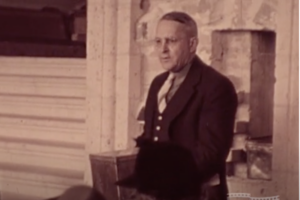The U.S. Department of Transportation recently announced that it will review its security and hiring standards to prevent a tragedy such as the downing of the Germangwings plane by co-pilot Andreas Lubitz at the expense of 150 lives.
In light of the stakes, let’s hope that the focus remains on the most helpful questions about how the Federal Aviation Administration monitors the mental health of pilots. Those questions must focus on how to incentivize disclosure.
To start, we don’t need to revisit our laws. We are already far “safer” than the Germans, whose employees’ rights to privacy are among the most staunchly protected in the world. The Americans with Disabilities Act permits an employer to require an employee to submit to testing to ensure safety where there is reason to believe the employee poses a “direct threat” to himself or others.
We also don’t need to re-investigate whether past depression is a good predictor of future violence. The evidence is clear that it is not. And a blanket exclusion of everyone with a diagnosable condition is utterly impractical anyway.
The population of qualified pilots having experienced depression is thought to be at least 10 percent, and that number does not include all of those flying safely with other labels that are connected in the public’s mind with risk of a crash.
These are dead ends. Instead, we should be looking closely at the link between the failure to disclose information about one’s mental state and injury to others.
If increased disclosure reduces workplace violence, then we need to know how to foster it. Almost nothing has been written on this, but there is reason to think that hard-and-fast blanket exclusions of workers discourage disclosure. That is, when employees know they will not be subject to a blanket exclusionary rule but will instead have the actual risks of their conditions evaluated carefully, they are far more likely to come forward.
The FAA has slowly begun to recognize this critical workplace dynamic, replacing outright bans on certain diagnoses and medicines with more nuanced approaches to illness and treatment. Rules prohibiting pilots from flying with AIDS (or with HIV while taking anti-virals) have been replaced with individualized assessments of pilots with these conditions, for example.
Five years ago, the FAA lifted a long-standing prohibition on flying while taking antidepressants. The agency also created a six-month window during which pilots with depression flying under the radar could come forward without penalty. Some advocates are now demanding that the agency allow pilots “closeted” with attention deficit hyperactivity disorder, known as ADHD, to be able to take certain medicines.
It may be tough, but if we are serious about safety, we need to put ourselves in the Germanwings co-pilot’s shoes. Circumstances in 2009 apparently led him to tell his bosses his darkest of secrets — that he had been hospitalized for depression and had been suicidal. The disclosure resulted in his successful treatment and re-integration, at least for a time.
But what had happened by 2015? It appears that Lubitz had by then been told that his pursuit of any treatment would mean he could not fly. He was driven to a doctor-shop to find treatment, or various components of it, that would hide from the doctors themselves — and from his employer — the gravity of his condition.
What can we do in the U.S. to maximize the likelihood that a pilot will reveal important information about his mental state? In a world where “passing” is still the operative word for most employees with mental illness, how can we encourage disclosure?
We should begin by allowing pilots, and other workers, to answer questions anonymously about the circumstances under which they would disclose various symptoms and feelings that we care about. We should study what safeguards, if any, would lead to more sharing and remove perceived or reported barriers to disclosure.
And we need to determine whether workers in areas with fewer protections against discrimination and termination would be less likely to disclose. Is there more workplace violence in such regimes?
These are the kinds of questions America should ask itself in the wake of the Germanwings crash. Fortunately, those focused on both opportunity and safety can on this point agree. The answers, however, may be hard to find.
Lucy Wood is a clinical professor of law at The University of Texas at Austin. Octavio N. Martinez, Jr. is the executive director of the Hogg Foundation for Mental Health at The University of Texas at Austin and the chair of the Behavioral Health Integration Advisory Committee at the Health and Human Services Commission.
A version of this op-ed appeared in the Huffington Post and the Austin American Statesman.
To view more op-eds from Texas Perspectives, click here.
Like us on Facebook.
We need to incentivize disclosure when it comes to employees and their #mentalhealth issues say profs in new op-ed: http://t.co/EGTKJKM6ve
— Texas Perspectives (@TexPerspectives) October 7, 2015



